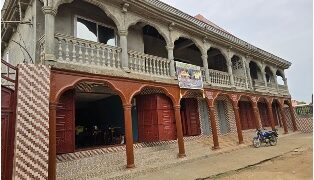By Alieu Amara Suwu
Parliament of Sierra Leone, every year, in line with Section 111, Sub-section 3, and Section 112, Sub-section 6 of the Constitution of Sierra Leone, 1991, Act No. 6 of 1991, and Standing Orders (S.0.) 64(3), commits the examination of budgetary heads of the bill entitled “the Appropriation Act ” to the Appropriation Sub-Committees in line with Standing Order 66(1).
These Committees are charged with the responsibility of working together with the Vote Controllers and the Accountants of the Ministries, Departments, and Agencies (MDAS) and carefully scrutinizing the budgets allocated to them in order to ascertain whether these funds are judiciously expended and to justify their submissions of financial year budgets in accordance with their work plans that they present to the committees.
This year, 2023, for the 2024 financial year, the Sub-Appropriation Committees started hearings on Thursday, November 30, 2023, in the Parliament Building. Eleven subcommittees were set up, each composed of Members of Parliament.
Before the MDAs appear before these committees, the established procedure of scrutinizing heads of expenditure is followed. One is sending out questionnaires to the MDAs for detailed information relating to the activities of the year under review.
Pursuant to S.0.66(1), the Vote Controllers are summoned to come along with their financial documents pertaining to revenues and expenditures of their MDAs for examination to ascertain the efficient and effective use of both human and financial resources, the constraints of the MDAs, and the adequacy or otherwise of their financial allocations.
After which, MPs probe MDAs with objectives to ascertain adherence to prudent public financial management regulations as a means of enhancing accountability in the utilization of public resources allocated under the yearly budgets; to know the strengths and weaknesses (if any) in the budget preparation and performance with the view of improving the appropriation process; to identify challenges and constraints faced by the MDAs in executing their activities; and to determine whether budgetary resources are equitably distributed.
Research and my experience in parliamentary reporting have taught me that most times the committees end up making general observations and findings, and this year’s appropriation is not an exception.
Most of the MDAs and local councils have only received allocations for the 1st and 2nd quarters, and those that have received all the quarters for a certain financial year have received less than the amounts allocated. This, they would say, cut in actual receipts by some MDAs and local councils negatively impacts performance.
The frequent transfer of finance officers and vote controllers in most MDAS has adversely affected the budget process. The newly assigned Finance Officers and Vote Controllers could not accurately respond to the Committee’s queries.
Allocations to the MDAs and local councils are not released on time. This also negatively impacts their budgetary performance and similarly creates huge, outstanding public debts for some MDAs, which also affects the administrative activities and development projects of the MDAS and local councils.
The documents submitted by some MDAs are haphazard and full of mistakes, as if some of these MDAs do not have time to correctly supply the information needed on the questionnaire.
Except for some consideration of the current economic situation, they will view the allocations to some MDAS and locals as inadequate. And the delay in releasing allocations results in unfinished activities and projects that are rolled over to the current. As a result of that, these rollover expenditures are not properly defended by some vote controllers and can also be a recipe for corrupt practices.
Concerns have always risen about the follow-up on these observations and recommendations. This year again, all of these have resurfaced, and even more.
The Committee on which I observed its deliberations most times cautioned vote controllers of MDAs about the use of personal email for administrative work. This is a traditional problem. Let us also bring to your attention that finance officers who might have authored documents cannot elaborately explain and defend money spent. Therefore, they are sometimes stood down and threatened to withhold budget if the needful is not done. It is sickening!
The appropriation clearly shows that if Parliament had done its work diligently, sincerely, effectively, and efficiently, there would have been no need to have the Anti-Corruption Commission.
I end by saying that the oversight function of Parliament must be upheld at times if we are to make speedy progress as a nation.























